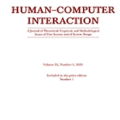This study considers how well an autoethnographic diary study helps as a method to explore why families might struggle in the application of strong and cohesive cyber security measures within the smart home. Combining two human-computer interaction (HCI) research methods - the relatively unstructured process of autoethnography and the more structured diary study - allowed the first author to reflect on the differences between researchers or experts, and everyday users. Having a physical set of structured diary prompts allowed for a period of 'thinking as writing', enabling reflection upon how having expert knowledge may or may not translate into useful knowledge when dealing with everyday life. This is particularly beneficial in the context of home cyber security use, where first-person narratives have not made up part of the research corpus to date, despite a consistent recognition that users struggle to apply strong cyber security methods in personal contexts. The framing of the autoethnographic diary study contributes a very simple, but extremely powerful, tool for anyone with more knowledge than the average user of any technology, enabling the expert to reflect upon how they themselves have fared when using, understanding and discussing the technology in daily life.
翻译:这项研究探讨了自动伦理日记研究如何很好地有助于探讨家庭为什么在智能家庭内难以应用强大和连贯的网络安全措施。将两种人-计算机互动研究方法(即相对没有结构化的自学和结构化的日记研究)结合起来,使第一作者能够思考研究人员或专家与日常用户之间的差异。一套物理结构化日记可以用于一个“认为是写作”的时期,使人们能够思考在处理日常生活时,专家知识可以或可能不会转化为有用的知识。这在家庭网络安全使用方面特别有益,因为第一人叙述并没有成为迄今研究资料的一部分,尽管人们始终认识到用户在个人环境中努力运用强大的网络安全方法。对任何技术的知识比普通用户更丰富的人来说,设计自学日记研究有助于一个非常简单但极其有力的工具,使专家能够思考他们在日常生活中使用、理解和讨论技术时是如何走得远的。



